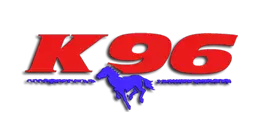
MSU Library, MSU Bookstore Work to Reduce Textbook Costs
BOZEMAN — Montana State University suggests that students budget $1,450 annually on books and supplies, but the MSU library and MSU Bookstore are working to reduce those costs and help make education more affordable for all students.
Nationally, textbook costs have risen in recent decades, and textbooks and course materials remain one of the of the most significant costs after tuition for students attending college.
MSU’s efforts are paying dividends. Since the library rolled out an initiative about two years ago to support and encourage faculty to use open educational resources, 33 MSU faculty members have switched to existing open educational resources in their classes, according to Christina Trunnell, reference and instruction librarian with the MSU Library. Trunnell said that, collectively, that has saved more than 9,500 MSU students more than $1.1 million in textbook costs. She estimates that by the end of the fiscal year in June, the savings will have grown to $2 million.
“That’s significant because it’s such a small percentage of MSU faculty,” she added. “Even a small number can result in large savings.”
Open educational resources, or OER, include teaching, learning and research resources that are in the public domain or have been released under an intellectual property license that permits their use and re-purposing by others. Put simply, that means they’re free for students, and open education is intended to provide the best resources for students to be successful in their courses while also being affordable.
“Open educational resources have the potential to have a huge impact on students, and that’s why we’re doing this work,” Trunnell said. “It’s very exciting.”
Trunnell added that it’s not uncommon for students to report that they choose not to purchase a textbook due to the cost. In addition, some students say they choose not to take a course they need due to the high cost of a textbook.
“Not purchasing a textbook can lead to students receiving a poor grade, dropping or withdrawing from a course, taking fewer courses or even skipping courses required for their degree or program,” Trunnell said.
“This can end up costing students additional money in the long run,” she continued, noting that students can wind up paying to retake courses needed for their degrees or increasing the time it takes to graduate, adding to the overall cost and their ability to complete a college education.
The library has an open call for grants that help faculty adapt course materials to use OER. Library staff provide copyright and accessibility consultation for faculty who are pursuing open educational resources and offer workshops on OER, including how to find them and understanding open licenses. The library also recognizes faculty excellence in this area with the MSU Excellence in Open Education Award, which is given annually at Spring Convocation.
Efforts are centered in education, Trunnell said. She noted that common hesitations among faculty about using OER relate to concerns about quality.
“Because they are not physical texts, a common perception is that they are of lower quality, but open educational resources go through the same peer-review and vetting processes that traditional textbooks do,” Trunnell said.
Trunnell noted that 17 faculty members have written and published — or are in the process of writing and publishing — new, customized open education textbooks and other materials.
“These publications are being shared in international repositories so that their work can be used and shared in classrooms worldwide,” Trunnell said. “They also become part of our national peer-reviewed open publishing repository.”
Jane Klassen, an instructor in the MSU Department of Chemistry and Biochemistry, first considered using open educational resources for one of her fall 2020 upper-level chemistry classes because she felt the textbook the class had been using was too expensive – about $200 – and also that parts of the textbook, even new editions, were dated.
“It just didn’t make sense for students to spend so much for a textbook that I didn’t particularly like,” Klassen said. “But I was also unsure about using an (open educational resources) text, because I was skeptical of the quality of OER texts.”
Klassen decided to try the OER materials and said she’s glad she did.
“I have now used the OER text for three semesters, and I really like the textbook and that the students have free access to the online version,” Klassen said. “I have printed out a hard copy at MSU (University Printing), and I always let students know that is an option for them, as well, which costs around $60. I have found the OER text to be a very good presentation of the material for the class. The graphics are good, and the content is good.”
By using OER, as well as materials from the MSU Library’s collection, Klassen eliminated both the textbook and the lab manual costs for her students. That saved the students in the class up to $9,500 that semester collectively, Klassen estimated.
Klassen added she appreciates that students have access to OER forever, even after the class ends.
“Topics do come up again, and the students never have to decide whether to keep the OER textbook or sell it back (or stop their subscription) once class is finished,” she said.
In surveys taken after the conclusion of classes that used open educational resources, MSU students praised the convenience of not carrying around physical volumes and the quality of the OER materials.
Kenning Arlitsch, dean of the MSU Library, said the library’s efforts align with MSU’s goals.
“The OER efforts highlight the library’s commitment to helping the university achieve its goals for student retention and graduation, as well as helping to lower the costs of education,” Arlitsch said.
In addition to the library’s efforts, the on-campus MSU Bookstore works to keep course material costs for students as low as possible, whether it be digital versions, rented versions or used copies of textbooks.
“The No. 1 thing to know about the MSU Bookstore is that textbooks are not a revenue center for us,” said Chad Schreier, president and CEO of the bookstore, which is a nonprofit business operating at MSU. “Our team comes in every day with a goal of reducing the costs of textbooks for students. Those savings add up to hundreds of thousands of dollars in price reductions every year.”
Schreier said that in a recent shopping cart comparison, MSU Bookstore textbook prices averaged 19% lower than its nearest for-profit competition.
The bookstore also uses its revenues from the sale of MSU-branded gear and other merchandise to offset the cost of textbooks for students. Bookstore staff members also work with faculty to provide an “affordability index” as they select course materials, allowing faculty to know what the associated cost will be for students. The bookstore also works with the library on OER.
“We are excited about OER as part of the course materials options for MSU students,” Schreier said.
Schreier said the bookstore was formed as a nonprofit in 1931, which was then the traditional model for campus bookstores, and is owned by its shareholders, with all current students and faculty members serving as those shareholders. But, he said, as education models changed over the years, many universities began to view bookstores as sources of revenue.
“Thanks to some really great foresight from a lot of people before me, that did not happen here at MSU,” Schreier said. “We maintained our business structure as we are, which is now unique. We’re very proud of our history and of our work to keep costs down for students.”
Schreier believes that the combined resources of the MSU Library and the MSU Bookstore can make MSU an even more affordable place to earn a degree.
“It’s great to have a partner like the MSU Library that complements the MSU Bookstore’s ongoing efforts of discounting prices, selling branded merchandise, conducting book buybacks for used book options, textbook rentals and e-book options,” Schreier said. “It’s great for our students to have so many options available to them.”
More information from the MSU Library about open educational resources is available at guides.lib.montana.edu/oer/overview. To learn more about the MSU Bookstore, visit msubookstore.org/.
- By Anne Cantrell, MSU News Service -









